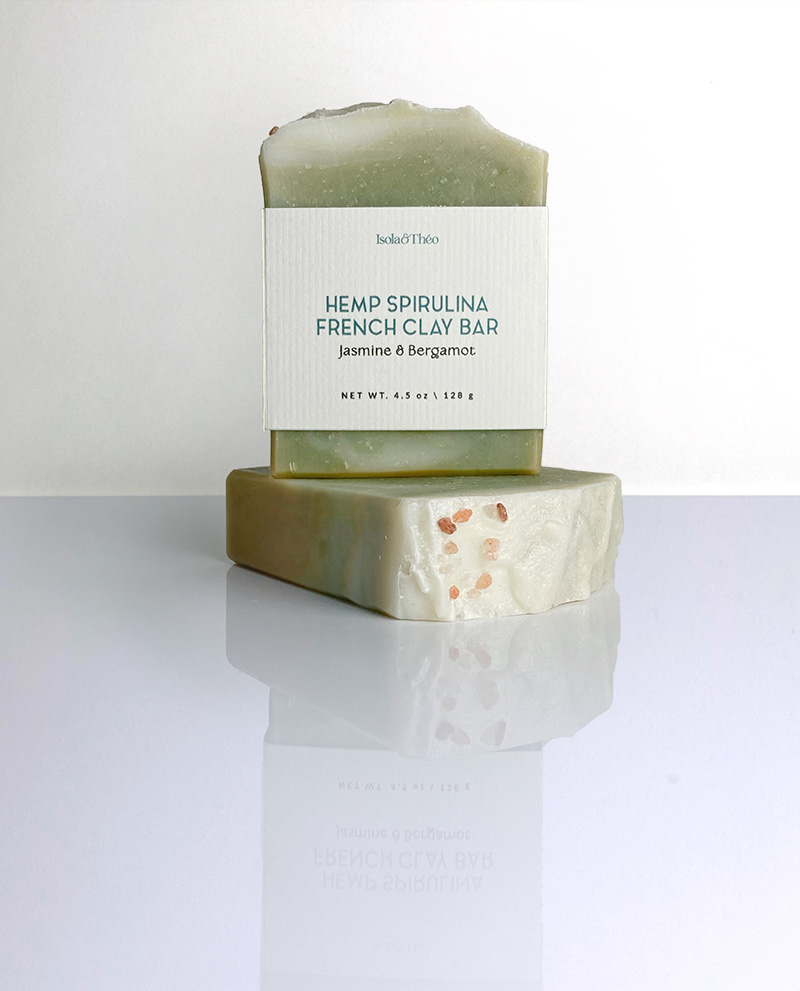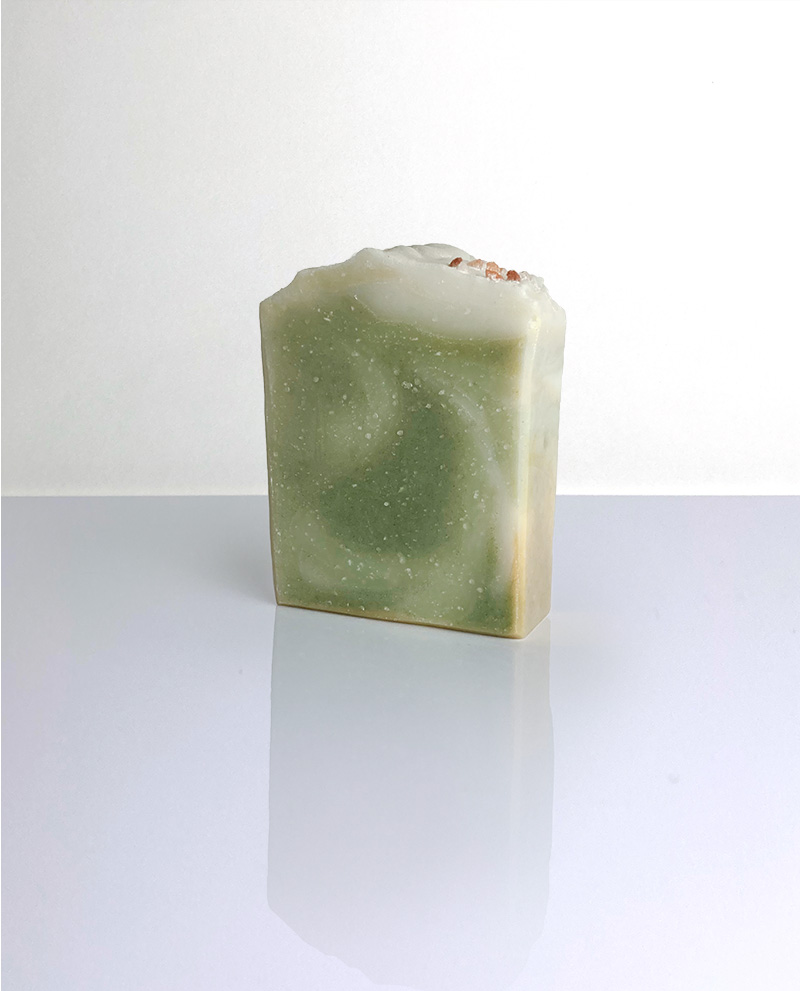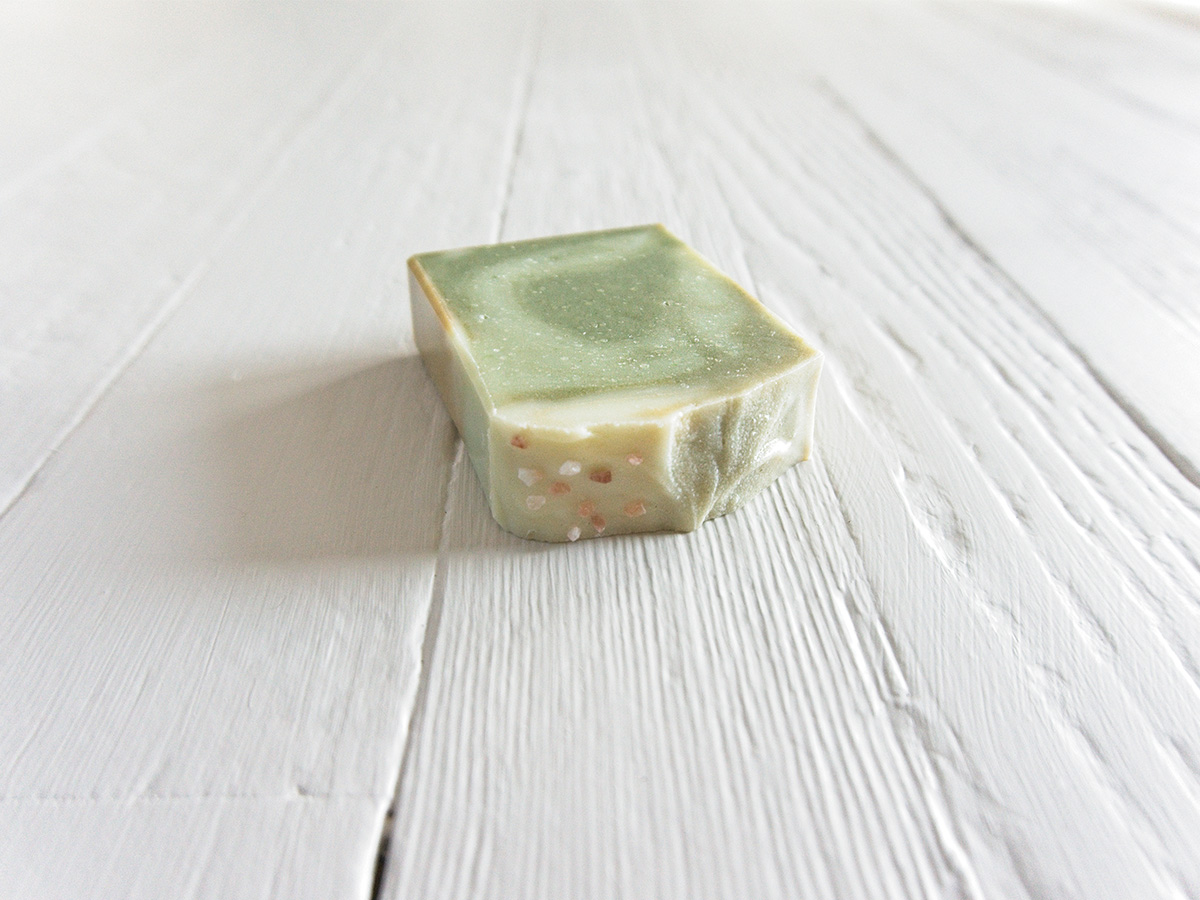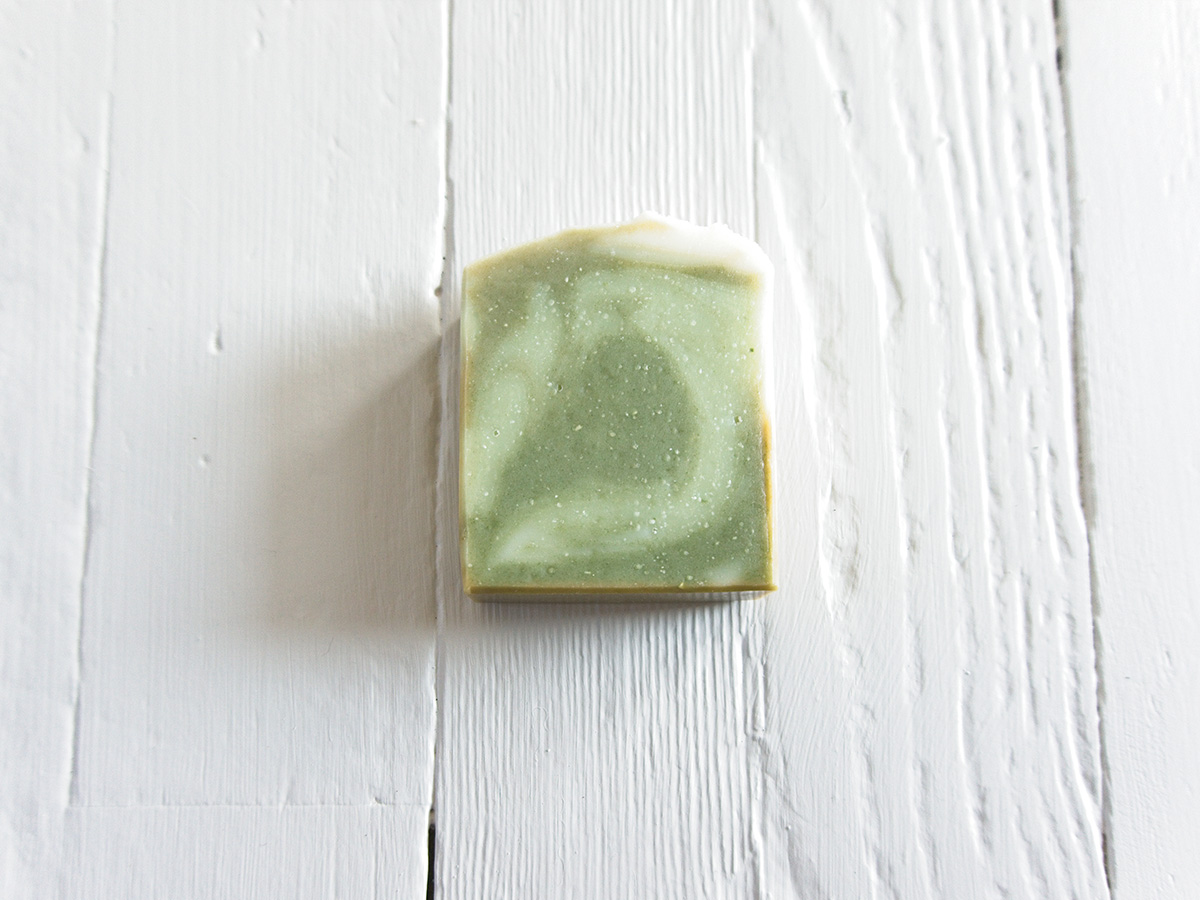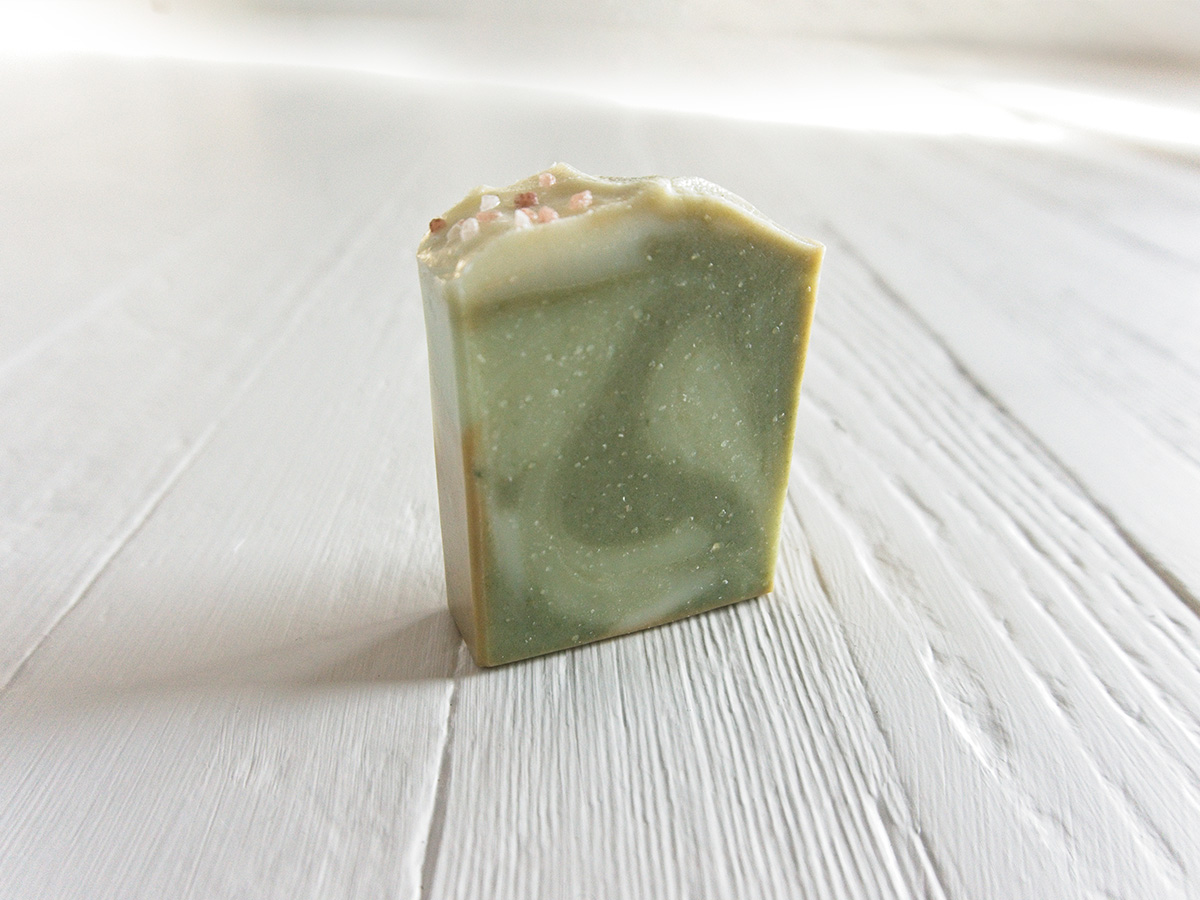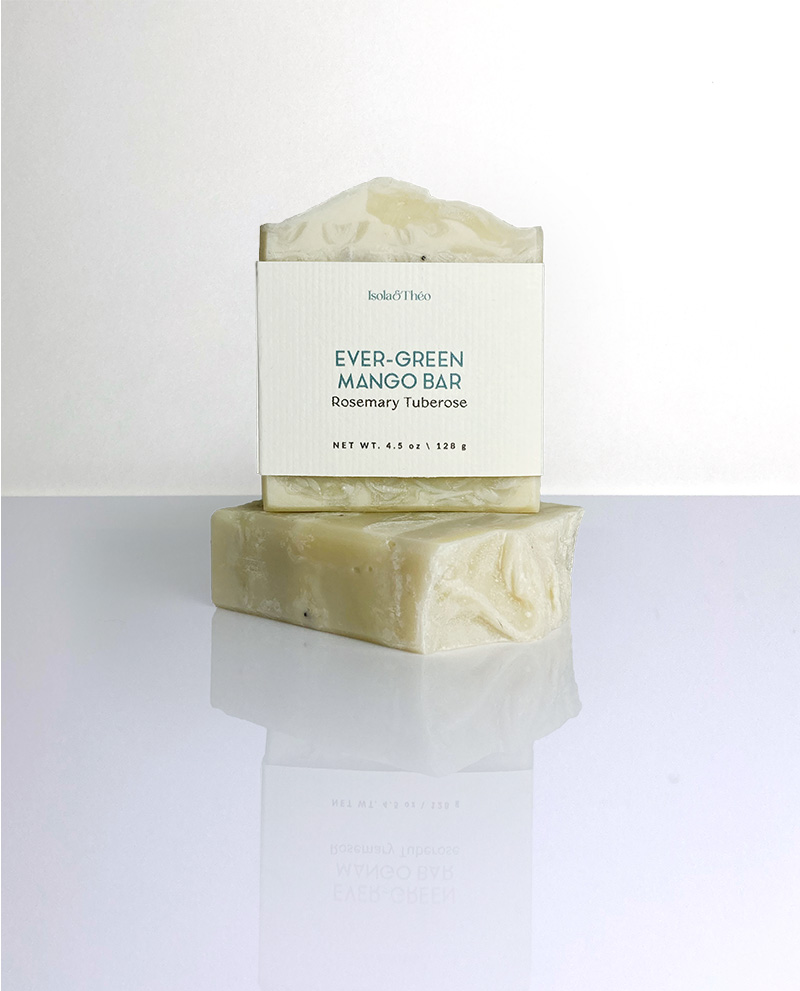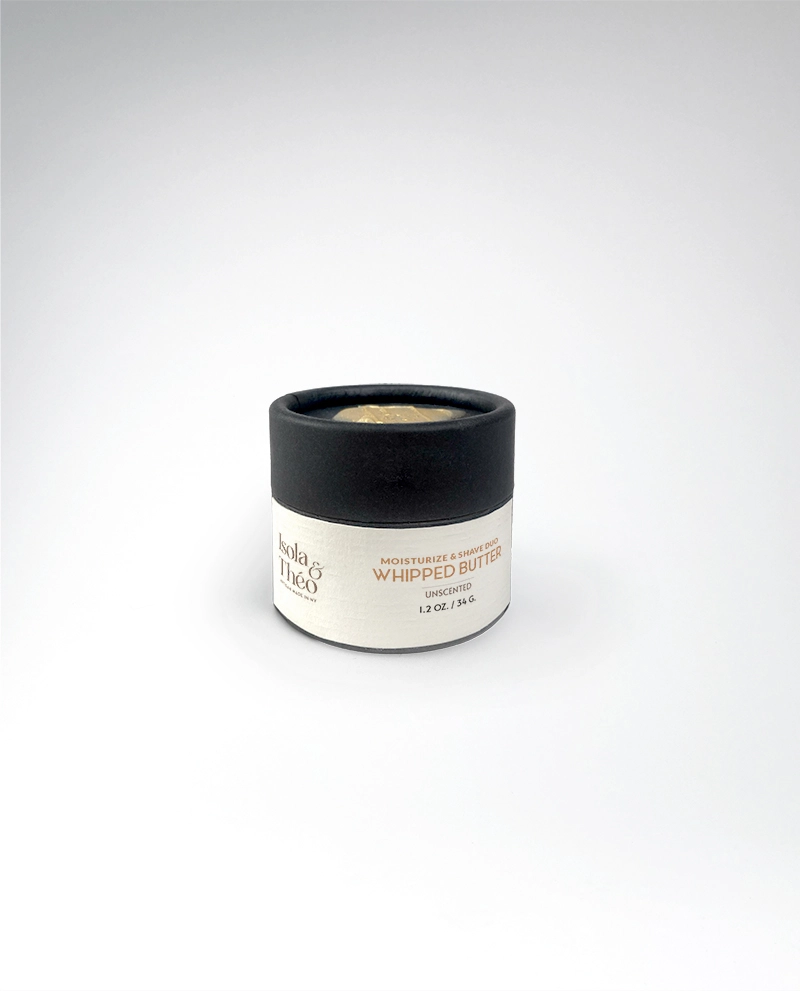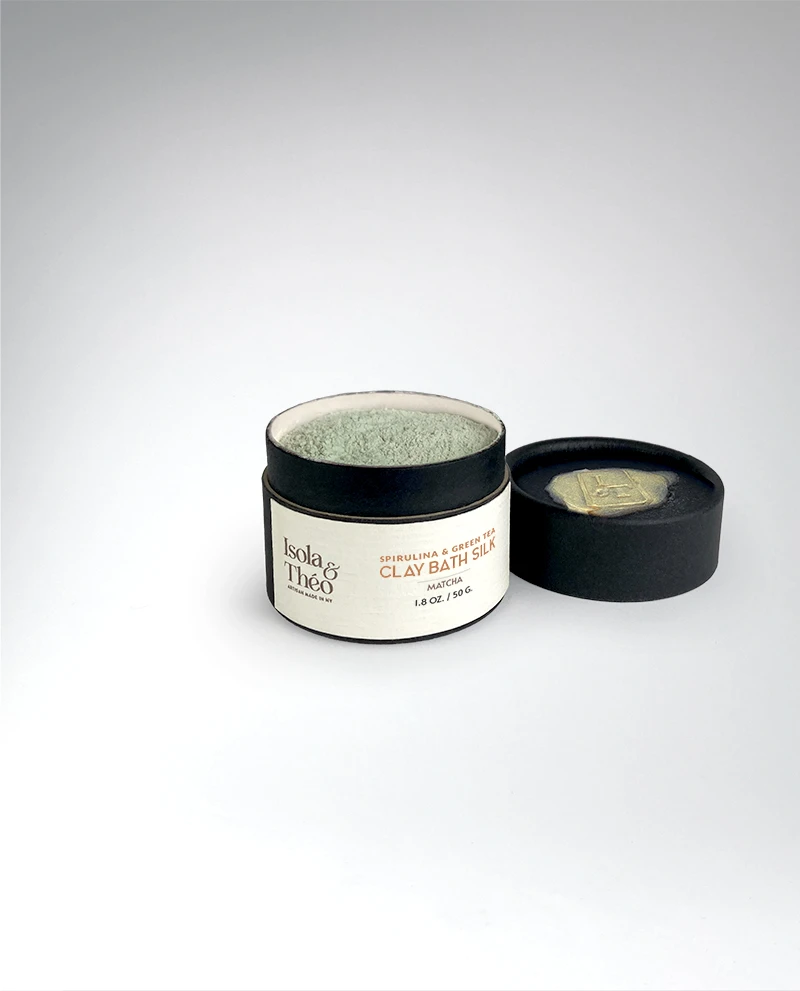Hemp Spirulina French Clay Bar
$12.00
Packed with moisture boosting goodness. Hemp and mango work hand in hand to retain moisture with an abundance of vitamins for healthier skin. Sea clay and spirulina work to increase cell turnover and decrease inflammation for skin of all ages.
Hemp & Spirulina
Carbon capture protagonists
Hemp is the darling of many cosmetic products, and quite frankly, it’s one of our favorites to build skin strength. We use unrefined oils to retain as many nutrients and beneficial properties present in the plant. Hemp seed oil contains a 3:1 essential fatty acid profile of omega-6 (linoleic acid) to omega-3 (alpha-linolenic acid) respectively, optimal for retaining moisture and a stronger skin barrier. Green clay (sea clay) is wonderful for very sensitive skin because of the fine particle size with elastic properties, smoothing skin’s appearance and alleviating irritation. Alumina and silica (not to be confused with silicone) naturally present in kaolin, aid in exfoliation, absorption of oils and increased collagen production. Their adsorption properties bond excess skin cells and sebum to these particles and lift away grime to clear pores. Spirulina algae is packed with antioxidants and vitamins, and is responsible for water retention for mature skin. Visually, it is the deeper olive color in this bar. Herbal tea scents with jasmine is one of our stronger scents, both fresh and lively.
Formulation
Rich in C-phycocyanins, this bar is subject to fading if kept in direct sunlight – a natural occurrence in many botanical colorants. This balanced bar effectively straddles the line of a highly conditioning bar with bubbly cleansing lather, and a firmness suitable for the shower. No bar should ever sit in a wet dish as this makes for a soggy, unhygienic bar.
All our products are formulated city and septic water safe.
The castor bean is an important plant source used in many industries from cosmetics to biodiesel and in an estimated 700 industrial applications. Grown primarily in India, the unpredictability of weather, increased cost of fertilizers and water and reduced margins saw a decline of interest from growers, despite the interest globally. Initiatives from stakeholders were launched to solve issues from living wages to providing knowledge for sustainable farming methods. As a fully biodegradable, low-cost product with productive yields with little competition to food crops, it is an ideal crop. It is not only a sustainable source, but has enormous potential as a petroleum alternative – many of which are found in mainstream skincare.
We source our cocoa butter from fair trade coalitions that harvest sustainably with healthy soil practices. Cocoa trees are becoming increasingly stressed by climate change and have been linked with unfair and harsh child labor practices. The tree is difficult to cultivate and process which makes the butter extremely valuable.
Virgin or unrefined coconut oil is produced by methods of expeller pressing (heat or steam) or cold pressing. We do not use hydrogenated coconut oil which use chemicals like hexane to extract. While monoculture of coconut oil can be associated with the impact of deforestation much like palm oil (with the exception of RSPO Palm), it’s a different type of tree that grows very well with other food crops and often is, while palm does not grow with other species. It also produces other products such as coconut milk and water, a great mulch source and charcoal. The charcoal we use in our soap comes from coconut. Much of the coconut oil imported to the US comes from Asia where farmers typically grow on their own holdings, but are as generationally poor as their predecessors. Keeping up with the demand for coconut, old trees are replaced with newer trees and chemical fertilizers are introduced for production. Exploiting children and monkey labor are also associated with this industry. For these reasons, we commit to using Certified Fair Trade coconut oil which regulates healthy soil practices and treats workers fairly.
Hemp plants are an extremely sustainable plant. Compared to 2-6 tonnes of carbon capture a forest can intake, hemp exceeds with an average 15 tonnes of carbon capture. It has a deep root structure that can seek out water deeply and can survive in drought conditions, requiring less water. It does not require pesticides or herbicides being very resilient, and produces flowers pollinators love. Because of it’s deep root structure it holds the soil well against erosion and helps break up the soil for the next crop rotation. Extraction is made through cold pressing, requiring far less energy than refined oils that use chemicals to change the structure of the fats.
Mango butter is high in lauric acid, more moisturizing than coconut oil and is high in vitamin E. It is a by-product of the fruit processing and it is most often cold pressed which requires no chemical extraction and far less energy.
Much of our skincare ingredients come from warmer climates. When we’re able to source anything from the Americas we opt for it every time. We source our olive oil from California. This decreases some burden of overseas shipping and the quality control of Fair Trade and soil initiatives in California are in alignment with our ethics. Because olive oil grows from trees that live season to season (in Europe there are massive trees), carbon capture is very effective with olive trees for absorption and long term storage. For our average 36 oz. large bottle of olive oil, it’s estimated to remove 22lbs. of carbon from our atmosphere. Olive oil extraction of cold pressing requires far less energy than some oils through refinement.
We source our palm oil from RSPO (Roundtable on Sustainable Palm Oil) Certified palm. This strong and ever-growing alliance was established to preserve all threats to habitats and the support local communities. Farmers are paid fairly and can focus on using healthy soil practices, and avoid illegal hunting and developing into natural ecosystems. By supporting this RSPO palm we are actively supporting this cause rather than boycotting palm altogether.
In biomass production (re: farming Spirulina with synethetic CO2 for food grade or cosmetic grade Spirulina, as used in our products), the cultured form outperforms spirulina found in nature to fix atmospheric carbon. This is really exciting and of course not the only form of carbon sequester both in nature or scientific attempts to mitigate climate change, but it is a source that has generated interest for a long time in the food industry and in skincare.
We firmly believe in fair trade and fair wage producers and will never be swayed by cheaper costs. When people are paid fairly, they live in safer environments and live more productive, happier lives. Learn more about where our industry ingredients come from and how we can make a concerted effort to fight climate change at Impact.
